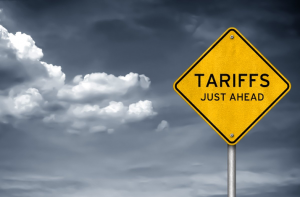By: Brittany Husk, 2L
On December 2, 2019, President Trump announced the termination, “effective immediately,” of Section 232 tariff exemptions previously granted to Argentina and Brazil. The tariff exemptions provided Brazil and Argentina exemptions from the twenty-five percent tariffs on steel imports and ten percent on aluminum imports to the United States.
In a Twitter message, President Trump accused Brazil and Argentina of manipulating their currencies, ultimately hurting American farmers. Currency manipulation occurs when countries purchase U.S. dollars to weaken their own currencies, thereby making goods on international markets artificially cheaper. Economists and government officials have rejected the idea that Brazil and Argentina are purposefully manipulating their currency. However, currency movements have made Brazilian and Argentine goods cheaper to purchase abroad.
With Section 232 tariffs now imposed, there is a risk that it can weaken Brazil and Argentina’s currencies further, consequently hurting the countries’ exports. Marco Polo de Mello Lopes, Executive President of Instituti Aco Brasil, a group that represents Brazilian steel mills, explained that the tariffs would impact current customers and bring uncertainty to the steel market. Argentina’s government is equally as worried and believes that the tariffs will decrease private sector production levels, exacerbate unemployment, and increase poverty levels.
President Trump initially imposed Section 232 tariffs with the intention of stopping a flood of imported steel and aluminum that his administration claims threatens American producers. The Department of Commerce also offered the explanation that steel and aluminum imports threaten U.S. national security. The legal basis for Section 232 tariffs has been disputed on multiple occasions, with several countries bringing cases against the United States at the World Trade Organization. These cases argue that the administration has not followed legislative timelines and procedures in imposing the tariffs, and has penalized countries that are not accused of shipping dumped or subsidized steel.
Jennifer Hillman, a senior fellow for trade and international political economy at the Council on Foreign Relations, expresses that Section 232 tariffs do not give President Trump the authority to alter tariffs outside of certain time limits. On the other hand, Michael Stumo, the chief executive of the Coalition for a Prosperous America, supports the metal tariffs, and provides that, “Congress and trade experts have ignored exchange rate moves in crafting trade policies for too long… The president’s action is a next step, after declaring China a currency manipulator earlier this year, to connect exchange rates and trade.”
With the approach of next year’s election, the Trump administration has appeared to be securing new trade deals with the United States. As Brazil and Argentina begin to navigate Section 232 tariffs, it will be interesting to see if the two countries will seek to secure new trade deals with the United States.





